Even if the words “the Spanish prisoner” don’t immediately have any meaning to you, you’re likely to be familiar with this scam, or at least the modern-day version of it. If you or someone you know has received a fax or (more likely these days) an email from someone claiming to be a Nigerian prince, then it’s a virtual certainty that you were targeted by this swindle (unless you happen to be related to a Nigerian of noble birth—which is possible, but unlikely).
This is an example of what is known today as an “advance fee fraud,” any of a broad number of cons which promise the “mark” a hefty reward in exchange for a paltry initial investment (well, paltry in comparison to the promised payoff, at any rate). In addition to the alleged financial reward, there is often an accompanying story intended to elicit sympathy from the recipient. This is a psychological ploy designed to circumvent the victim’s skepticism and make them more likely to fall for the scam. People are generally more likely to question their own motivations when they’re pursuing an inherently selfish or greedy cause, but if they can convince themselves that what they’re doing is in some way helping someone, or righting an injustice, they’re less likely to scrutinize what is being asked of them.
"The Spanish Prisoner" scam has existed in some form or another dating back to the late 1600s, known prior to the Spanish-American War as "Letters from Jerusalem." The fact that a con has been so consistently revisited for so many years is a testament to just how easy (and relatively risk-free) it is for the perpetrators, and how effective and profitable it can be. Much like infomercials, if they didn't keep making money, they’d stop producing them.
One thing to note is that, in earlier iterations, the perpetrators didn't have the advantage of bulk mail, fax machines or email. This meant that they didn't have the option of sending out thousands upon thousands of letters, knowing that some percentage of people would respond. Instead, they were required to do a bit of planning and research, tailoring their con to specific targets.
Our own collection here at the Western History and Genealogy department contains a collection of letters to Mr. and Mrs. Junius Bare (Junius Henry Bare Papers, -M34), who very nearly fell prey to a variant of the scam in 1910. This particular form is a bit of a slow burn, with the opening gambit being a letter from an attorney introducing what the cast of characters and casually mentioning a sum of money toward the end of the first page. The letter lays out an elaborate story involving the death of a man who was the guardian to a hitherto unknown niece; and her father, an uncle (also hitherto unknown) who has been imprisoned for political reasons. Such a ploy would have been much easier to pull off at that time, when overseas communications made keeping track of extended family a much more difficult task. Included with the letter was a very official looking Spanish language document (above) headed escribano de actuaciones de este juzgado militar (clerk of proceedings of this military court).
After this initial contact, there followed a series of correspondences, starting with a letter from the Bare’s “niece,” followed by letters from a public notary and a court, several personal letters from the titular prisoner expressing extreme gratitude (and much financial reward) if they would agree to take custody of the niece. The scam was so well realized and convincing that even when the Bares consulted a friend of theirs, a noted lawyer and former Governor (presumably for Virginia, since that’s where they lived), even he was duped into thinking this was a great opportunity.
It was only when the bank, which they had contacted in preparation for sending the requested funds, decided to do a bit of research of its own that the scheme began to crumble. They contacted the Bank of England to see if the niece actually had a “special deposit” there awaiting release, only to discover that no such account existed. Following this revelation, the Bank of Balto suggested the Bares would be better off transferring the funds to a bank of their choosing, rather than sending it to the requested location. If, indeed, it was a legitimate transaction, the recipients would surely have no qualms about retrieving the funds from the Bank of Paris, instead. As it turned out, the funds sat untouched for several months, before being returned to Mr. Bare’s account.
This is a rather truncated overview of a very complex ruse. Reading through these communications, it’s easy to see how someone could fall for such a carefully crafted scheme. While modern variants aren't nearly as elegant or personally targeted, they do have the advantage of a seemingly endless number of differing approaches. Some of the more common techniques involve promises of employment; unclaimed lottery winnings; online romance; inherited real estate; or even out-and-out money laundering, among many, many others. As a general rule to protect yourself, if anyone ever offers you (anonymously and out of the blue, no less) something of tremendous value in exchange for a paltry initial payout on your part, it’s pretty much guaranteed to be a scam.
If you’d like to peruse the Bare documents for yourself, to get the full impact, swing by Western History and Genealogy. While you’re at it, why not follow our page on Facebook?

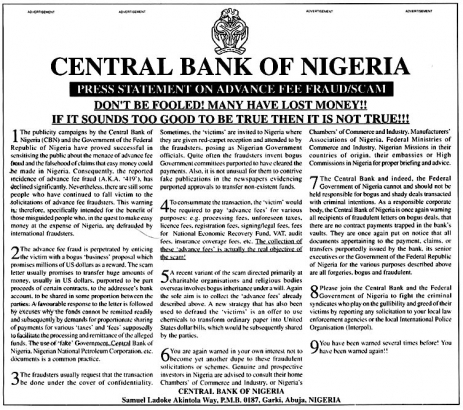
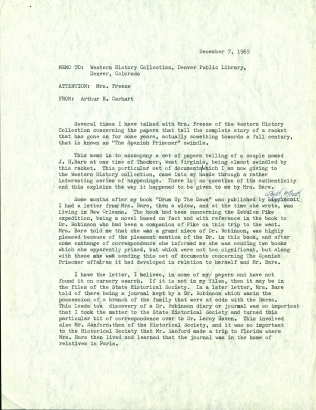
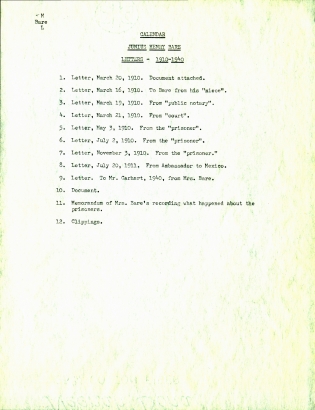
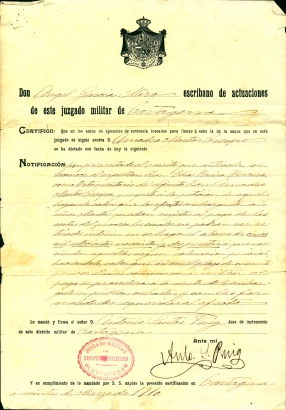
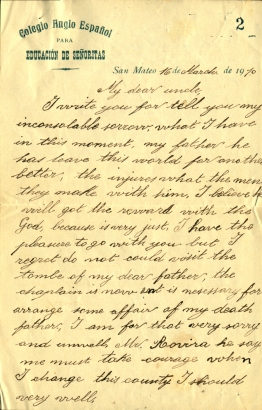
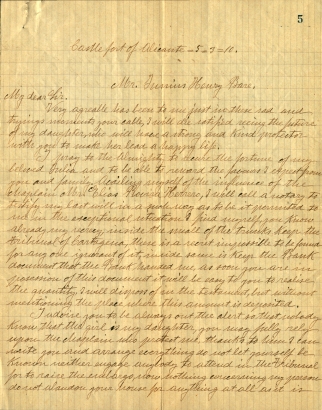
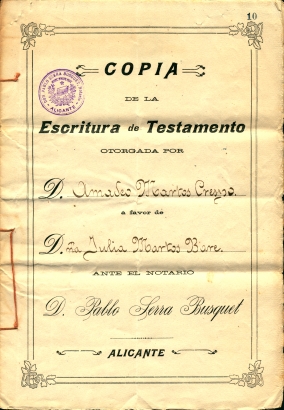
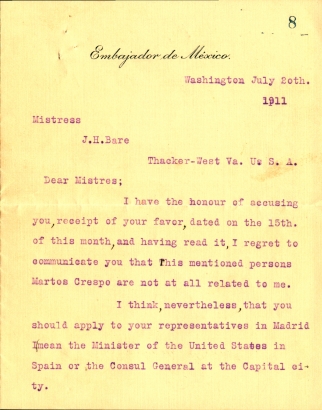
Comments
Thank you for putting
Thank you for putting together this article. It's quite interesting to know the history of the so often received Nigerian prince (or princess) e-mails and see how it played out for one individual in history.
Investment is one of the…
Investment is one of the best ways to achieve financial freedom. For a beginner there are so many challenges you face. It's hard to know how to get started. Trading on the Cryptocurrency market has really been a life changer for me. I almost gave up on crypto at some point not until saw a recommendation on Elon musk successfully success story and I got a proficient trader/broker Mr Bernie Doran , he gave me all the information required to succeed in trading. I made more profit than I could ever imagine. I'm not here to converse much but to share my testimony. I recovered all my losses and I invested $1000 and received a return profit of $10,500 within 1 week. Thanks to Mr Bernie I'm really grateful,I have been able to make a great returns trading with his signals and strategies .I urge anyone interested in INVESTMENT to take bold step in investing in the Cryptocurrency Market, he can also help you recover your lost funds, you can reach him on WhatsApp : +1(424) 285-0682 or his Gmail : BERNIEDORANSIGNALS@ GMAIL.COM tell him I referred you
I'm glad you enjoyed it,
I'm glad you enjoyed it, Amanda! I certainly found it to be a fascinating look at how this fraud has evolved over time. Thanks for the comment!
I first remember seeing them
I first remember seeing them at work in the early 90s, they would come in air mail envelopes. Then we started seeing them on the fax machine. They seem to have gone back to faxes, I have seen six or seven in the last month complete with gmail addresses and legal websites.
Can you get me a book from…
Can you get me a book from Nigeria
Hi Lisa! I used to work
Hi Lisa! I used to work somewhere where we received at least two of these kinds of faxes every week. Thanks for commenting!
Add new comment